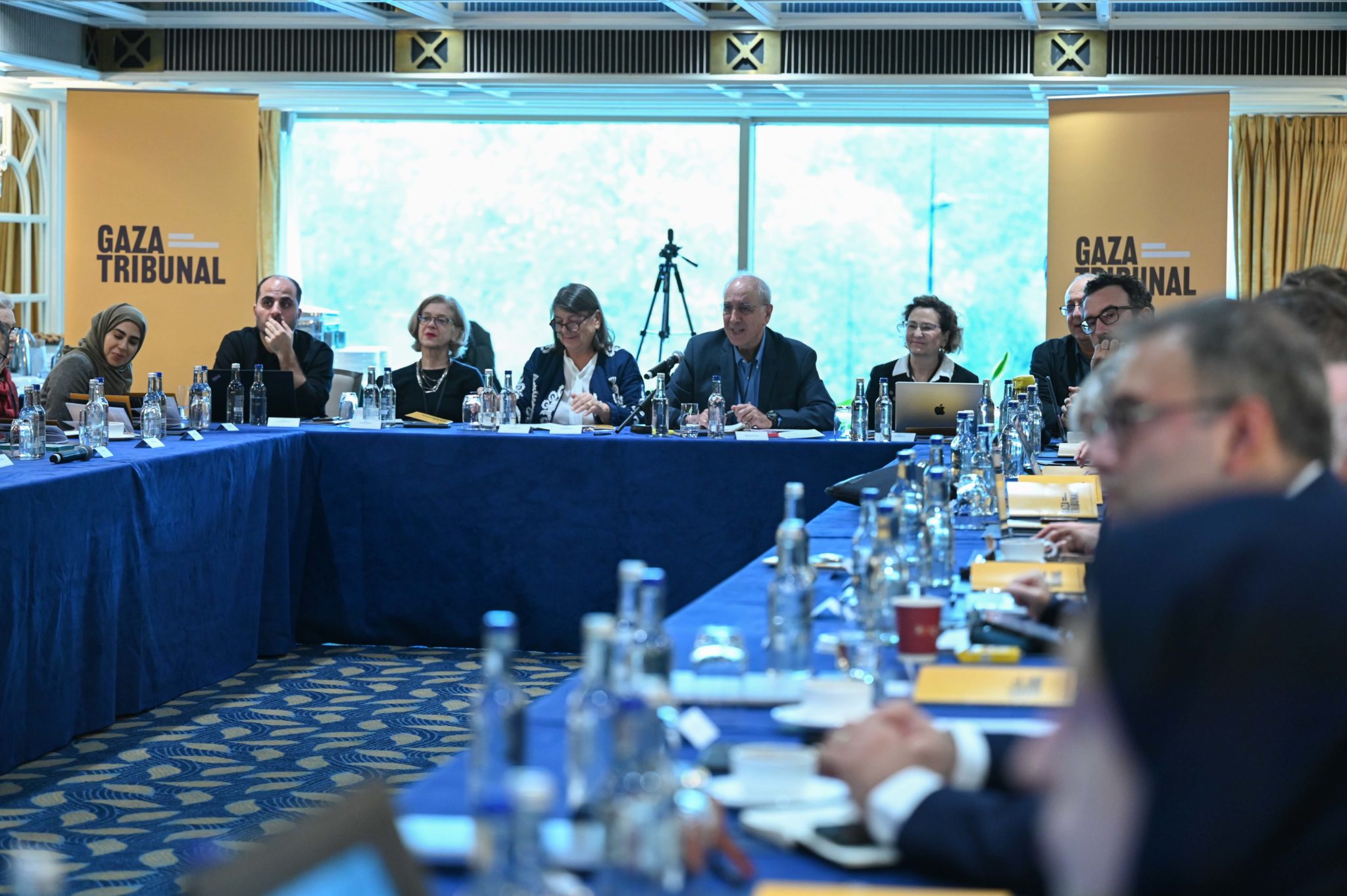
“Why establish a People’s Tribunal despite the International Court of Justice’s involvement? Because the international order has failed its duty—the ICJ, even after defining Israel’s actions as genocide, cannot enforce its rulings.”
A group of renowned intellectuals, jurists, artists, human rights advocates, and representatives from the media and civil society organizations gathered in London last week, to launch the Gaza Tribunal – an independent initiative serving as a “court of humanity and conscience.”
“Gaza represents a breaking point in the historical journey of humanity, where a global system based on power, not justice, prevails,” the Gaza Tribunal website states. “Based on this perspective, the need to address what is happening in Gaza through its historical, political, philosophical, and legal dimensions is becoming an urgent, necessary duty for humanity.”
The Gaza Tribunal initiates its process
Gaza marks a critical point in humanity’s journey, revealing a global system rooted in power over justice. Addressing Gaza’s situation through historical, political, philosophical, and legal lenses has become an urgent duty.
The Gaza… pic.twitter.com/rzivTMQTWw
— Gaza Tribunal (@gazatribunal) November 4, 2024
Led by Richard Falk, a distinguished international law expert and former UN special rapporteur on the occupied Palestinian territories, the tribunal is taking an alternative route to international justice, aiming to spotlight voices from civil society in the examination of abuses following the conflict that escalated after the October 7 Resistance operation.
Why the Need?
Despite the genocide case against Israel currently underway at the International Court of Justice (ICJ), the initiative is seen as a People’s Tribunal.
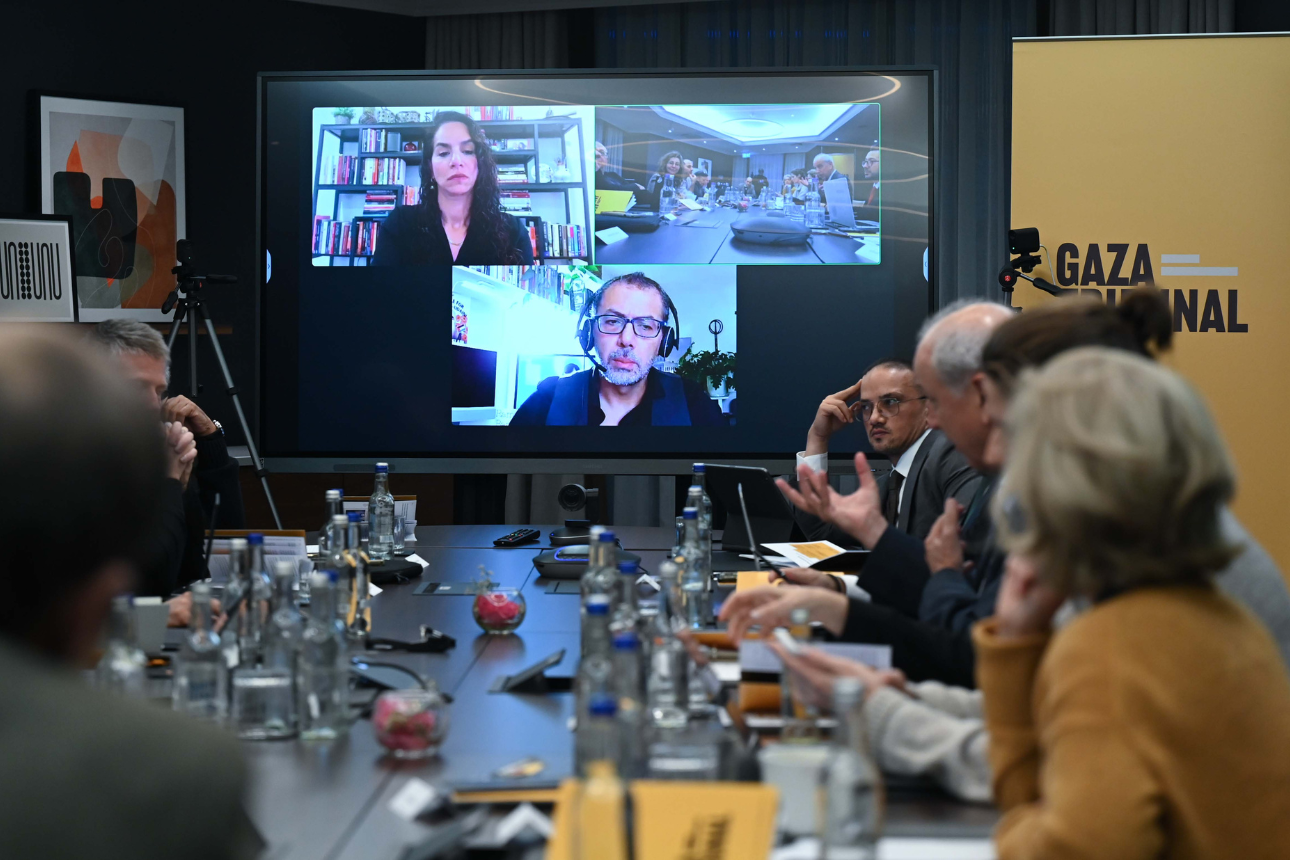
“The international order’s failure in fulfilling its duty is exactly why a people’s tribunal is needed. The International Court of Justice, despite designating Israel’s current war as a genocide, is unable to enforce its rulings,” the website states.
The Gaza Tribunal, which convened for two days of initial preparatory meetings in London, brought together around 100 participants.
Who is Involved?
Some who attended the London meeting include Michael Lynk, Ilan Pappe, Jeff Halper, Ussama Makdisi, Ayhan Citil, Cornel West, Avi Shlaim, Naomi Klein, Aslı Bali, Mahmood Mamdani, Craig Mokhiber, Hatem Bazian, Mehmet Karlı, Sami Al-Arian, Frank Barat, Raji Sourani, Hilal Elver, Diana Buttu, Ahmet Köroğlu, Noura Erakat, Susan Akram, Judith Butler, Daud Abdullah, Ramzy Baraoud, Wasem Ahmed, Shahd Hammouri.
Last week in London, the Gaza Tribunal was launched as a ‘court of humanity and conscience’
Aims to bring civil society voices into the investigation of war crimes in Gaza
Led by Richard Falk, former UN rapporteur on occupied Palestinian territories… pic.twitter.com/efufFcbdPN
— Anadolu English (@anadoluagency) November 4, 2024
Among the participating organizations were Law for Palestine, the Palestinian Environmental NGOs Network, the Arab Network for Food Sovereignty (APN), Adalah, the Legal Center for Arab Minority Rights in Israel, Palestinian human rights organization Al-Haq, BADIL, Al-Mezan Center for Human Rights, the prisoner support and human rights group Addameer, and the Palestinian Center for Human Rights (PCHR).
What are Its Objectives?
The Gaza Tribunal has two main objectives: one particular and one universal. The particular goal is to assist in bringing the tragic events to an end as soon as possible and to hold the perpetrators accountable in the public conscience.
The universal aim is to issue a decision grounded in humanity’s intellectual and moral values, one that can serve as a reference to prevent future atrocities worldwide.
Horrific scenes unfold as the relentless Israeli bombardment target Kamal Adwan Hospital in northern Gaza, resulting in injuries among medical staff and children, as well as damage to the hospital’s property and buildings. pic.twitter.com/LszLUbgM7E
— Quds News Network (@QudsNen) November 5, 2024
Dwelling on the multi-dimensional underpinnings of the fact that such grave events can, have, and still occur at this point in human history, the Tribunal aims to explain why humanity has been unable to put a stop to such atrocities/how humanity can put a stop to such atrocities.
According to the website, the Tribunal’s “legitimacy comes from addressing the long-standing wounds of the Palestinian issue, with a focus on the ongoing tragedy in Gaza.”
The Outcome
The comprehensive document to be created by the Tribunal after all these investigations and evaluations will fill a critical gap that the nations have realized and will serve as a guiding document for all the world’s nations, states the website.
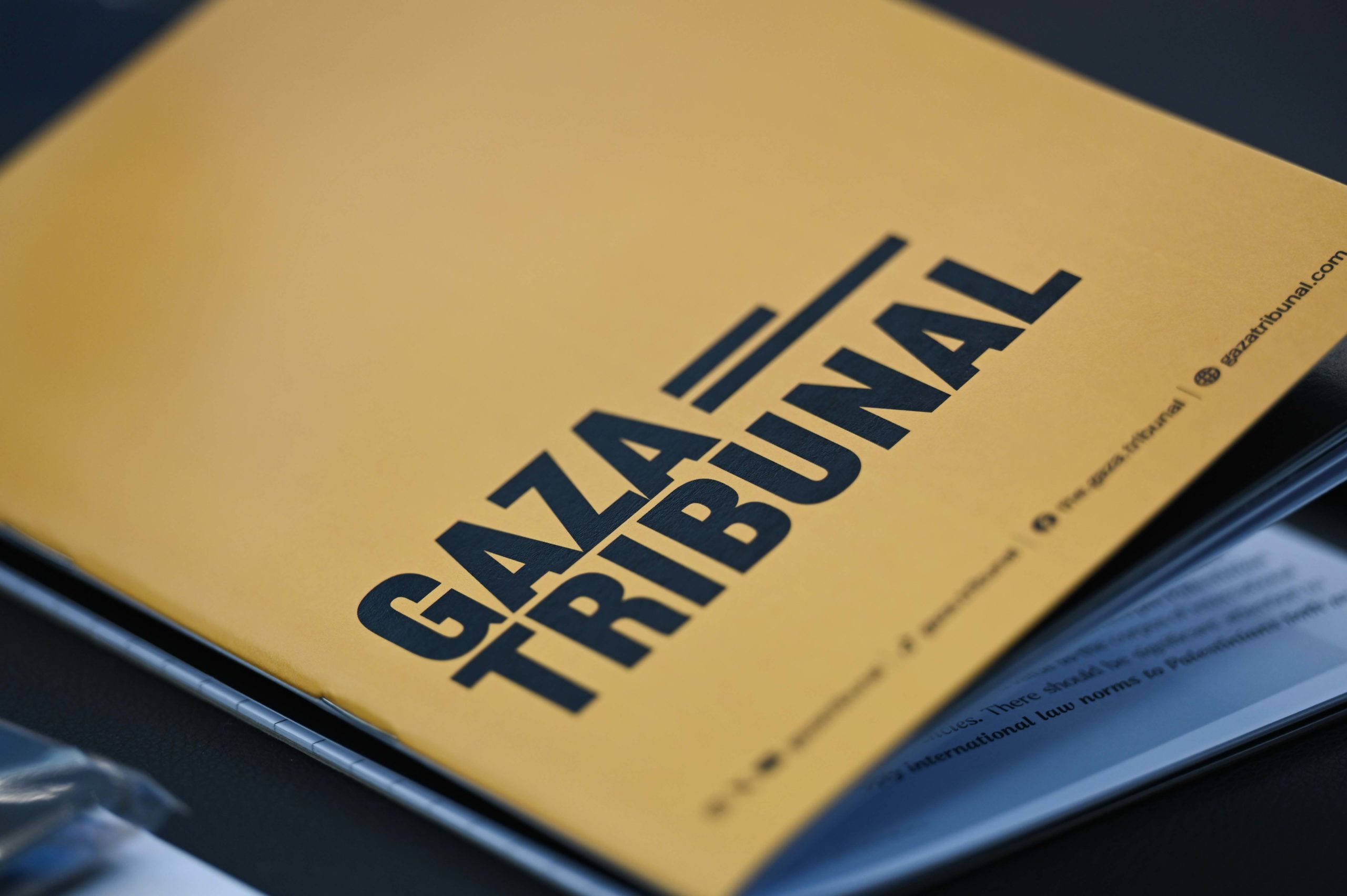
How Tribunal Operates
According to its website, the Gaza Tribunal mainly consists of the Presidential Committee, the Grand Chamber and 3 Specialized Chambers and six Administrative and Supportive Units.
Acting as a jury of conscience, the Grand Chamber of the Tribunal will consist of all committees’ members and around ten invited people as well. Additionally, jurists, academicians, artists, and intellectuals who have been recognized but have not served on these chambers may also be included in the Public Session Members. The Public Sessions make decisions by a majority rule. Having each member’s opinion be reflected in the decision is essential, and each member has the right to write positive, negative, or differing opinions to be appended to the decision.
GAZA CIVIL DEFENSE:
The occupation continues to forcibly disrupt our services in the northern Gaza Strip for the 14th consecutive day.
We are facing a real famine in the northern Gaza Strip due to the occupation's insistence on preventing the entry of aid. pic.twitter.com/RddbnREpe0
— The Palestine Chronicle (@PalestineChron) November 5, 2024
Each chamber will consist of five to six members. These members will be among the renowned people in their respective fields. The chambers will discuss and arrive at decisions within their specific areas of discussion, including International Law Chamber, International Relations and World Order Chamber and History, Ethics, and Philosophy Chamber.
Given the Tribunal’s purpose of drawing attention to the genocide happening in Gaza, the aim is to have the physical sessions of each chamber be broadcast live on such international media channels as TRT World, Associated Press and Al Jazeera.
It will also be comprised of Administrative and Supportive Units.
Administrative Units ensure the efficient and proper functioning of the Tribunal and provide the necessary conditions for fair decision-making. Supportive Units, created at the discretion of the Presidential Committee, facilitate steps that contribute to the achievement of the Tribunal’s objectives.
Inclusivity and Accessibility
In a statement, the tribunal emphasized its commitment to inclusivity and accessibility, inviting Palestinian civil society groups and individuals directly affected by the conflict to submit evidence and testimony, the Anadolu news agency reported.
This body, organizers said, aimed to fill a gap by focusing on the human impact of Israel’s policies and actions on Palestinian civilians.
20 Palestinians were killed in an Israeli shelling that targeted a house in Beit Lahia in the northern Gaza Strip.
Two Palestinians were killed as a result of a drone attack and shelling carried out by the occupation forces on the village of Al-Shuhada, south of Jenin in the… pic.twitter.com/xeG6A7WnIt
— The Palestine Chronicle (@PalestineChron) November 5, 2024
Beyond addressing recent events, the tribunal’s legal framework will integrate themes of settler-colonialism and apartheid, contextualizing its findings within the decades-long Israeli-Palestinian conflict and historic events such as the 1948 Nakba and Israel’s occupation of Palestinian territories post-1967.
According to the organizers, the Gaza Tribunal “derives its power and authority not from governments but from the people in general and Palestinians in particular, that uses the intellectual and conscientious accumulation of humanity, with which anyone with common sense can agree and that can produce judgments and documents to which one can refer regarding future problems.”
Second Phase
According to organizers, the Gaza Tribunal’s second phase is scheduled for May 2025 in Sarajevo, Bosnia and Herzegovina, where prepared reports, witness statements, and draft declarations will be shared with the public.
Representatives of affected communities and expert witnesses are expected to speak at the Sarajevo session.
The tribunal’s main hearing, a crucial part of the initiative, is planned for October 2025 in Istanbul, Türkiye.
In Istanbul, an expert panel will present a draft of the tribunal’s findings and decisions, incorporating testimonies from witnesses and statements from Palestinian civilians and organizations affected by the crisis.
Ongoing Genocide
Flouting a UN Security Council resolution demanding an immediate ceasefire, Israel has faced international condemnation amid its continued brutal offensive on Gaza.
‘Systematic Policy’ – Israel Targeted 65 Shelters for Displaced in Gaza from August to October
Currently on trial before the International Court of Justice for genocide against Palestinians, Israel has been waging a devastating war on Gaza since October 7.
According to Gaza’s Ministry of Health, 43,391 Palestinians have, to date, been killed, and 102,347 wounded.
Moreover, at least 11,000 people are unaccounted for, presumed dead under the rubble of their homes throughout the Strip.
Israel says that 1,200 soldiers and civilians were killed during the Al-Aqsa Flood Operation on October 7. Israeli media published reports suggesting that many Israelis were killed on that day by ‘friendly fire’.
Millions Displaced
Palestinian and international organizations say that the majority of those killed and wounded are women and children.
The Israeli war has resulted in an acute famine, mostly in northern Gaza, resulting in the death of many Palestinians, mostly children.
The Israeli aggression has also resulted in the forceful displacement of nearly two million people from all over the Gaza Strip, with the vast majority of the displaced forced into the densely crowded southern city of Rafah near the border with Egypt – in what has become Palestine’s largest mass exodus since the 1948 Nakba.
Later in the war, hundreds of thousands of Palestinians began moving from the south to central Gaza in a constant search for safety.
(PC, Anadolu)



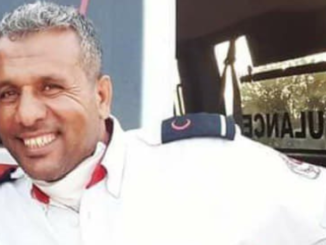
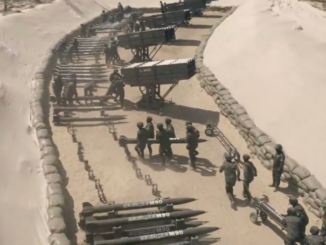
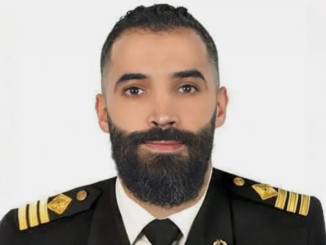




I truly hope this tribunal will accomplish something. But: the Red Army broke the back of the Nazi regime and stopped the Holocaust, not speeches, analysis, etc.
The knot is tightening in the Middle East. Sorry for the innocent lives lost. They are but hostages of a disgusting state: the USA. Meanwhile, it’s clear to everyone that a full-scale war is the only way to a shaky peace in the region.
— Dmitry Medvedev (@MedvedevRussiaE) July 31, 2024
https://www.palestinechronicle.com/medvedev-full-scale-war-could-be-only-solution-for-middle-east-peace/
Where is our metaphorically Red Army? Syria, Iraq, Yemen, Palestine, and Iran? And China & Russia?
What penalties can Court of Humanity and Conscience’ – Gaza Tribunal impose if the UN and ICJ cant?
Whilst the setting up and aims of the Gaza Tribunal are wholly laudable, the very concept of a “Court of Humanity and Conscience” must be rather naïve given that Israel (and its supporters/enablers) is completely devoid of both humanity and conscience. The UN is totally impotent and international law is only meaningful to those countries which respect it so Israel ignores both and does what it wants anyway. Wouldn’t the Gaza Tribunal have even less impact and just provide yet another talking shop? It may also be proscribed in many pro-Zionist countries just as the very worthy and effective BDS movement has been. However, as a Humanist and a ‘person of conscience’, I hope I am wrong!
Zionism must be defeated on the battlefield first and only then can a global court be set up to prosecute all who collaborated in this genocide.